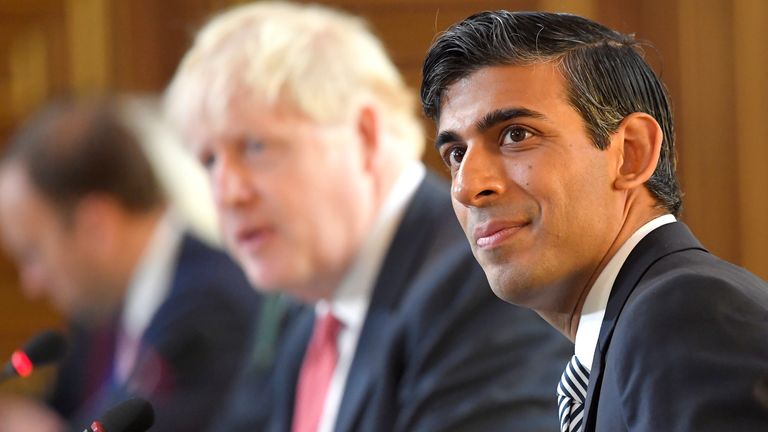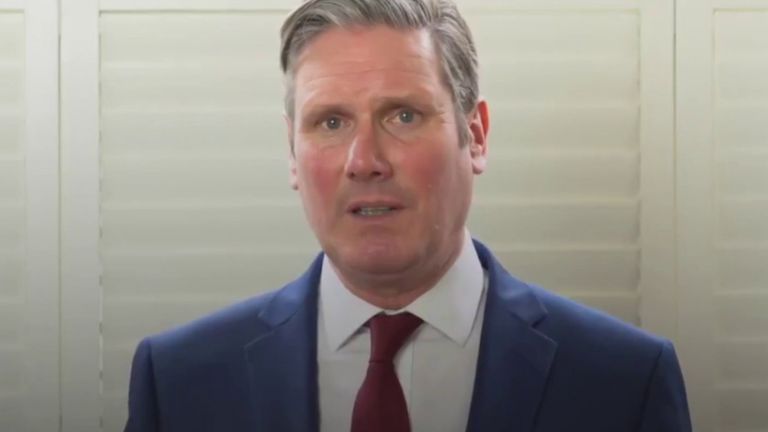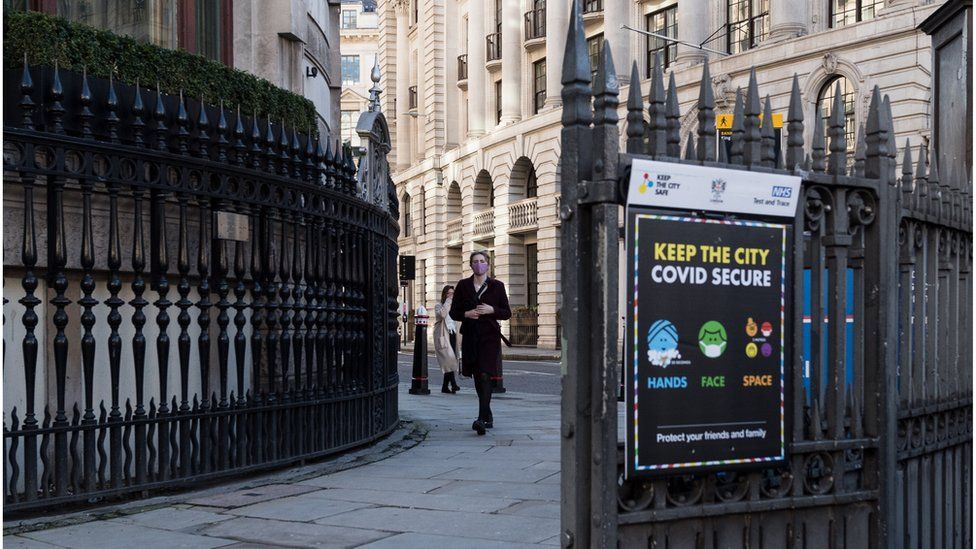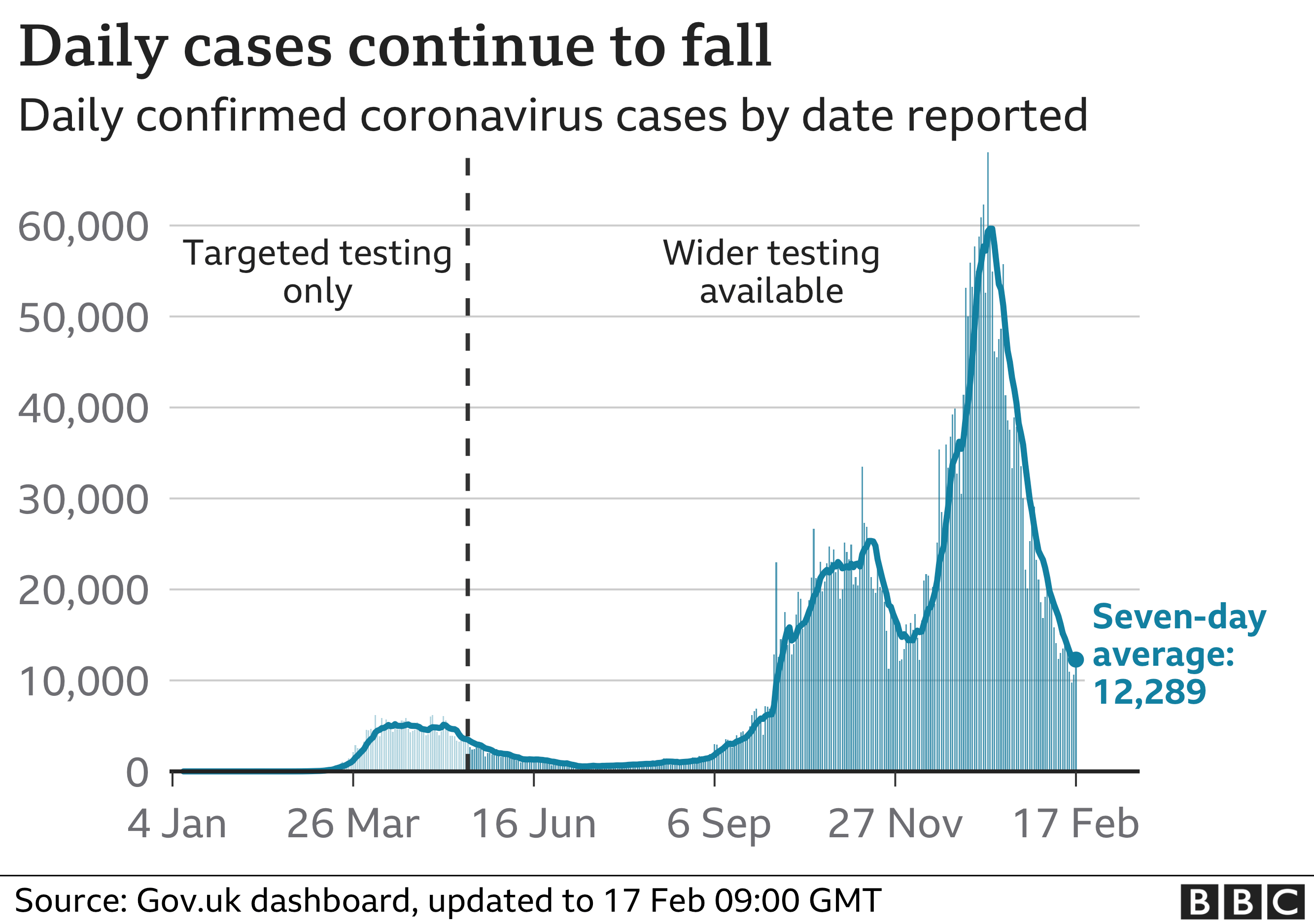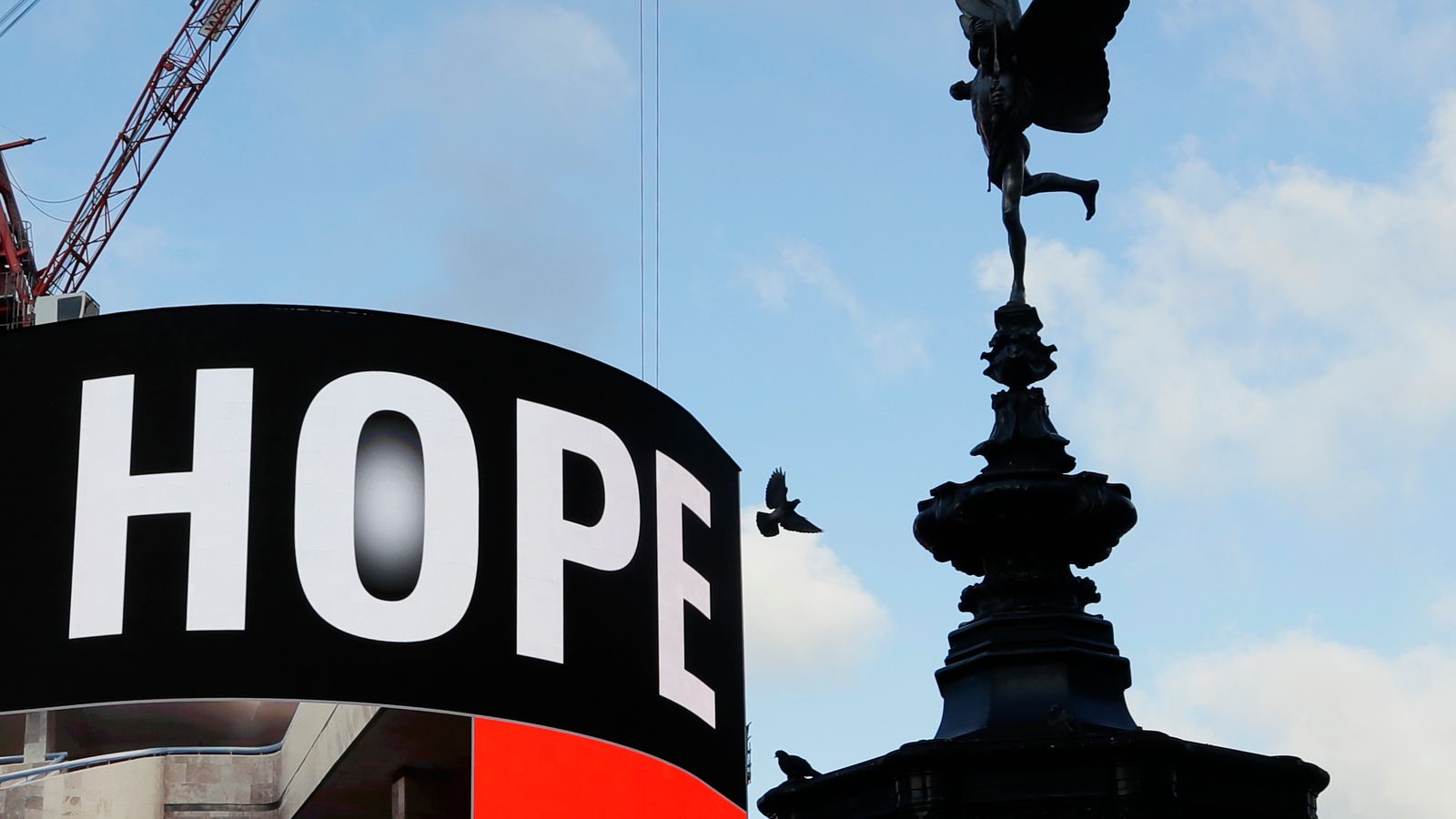Sir Keir Starmer has set out his vision for a post-coronavirus Britain, declaring: "We can't return to business as usual."
The Labour leader said the COVID-19 crisis had exposed the UK's "fragilities" and must prompt a bout of national soul-searching, declaring now was a "moment to think again about the country we want to be".
Latest coronavirus updates from the UK and around the world
Comparing the UK's current situation to the period after the Second World War, when the NHS and welfare state were established, Sir Keir said it was a "chance to diagnose the condition of Britain and to start the process of putting it right".
He accused Boris Johnson of offering a "roadmap to yesterday" and "another decade of insecurity and inequality".
"We know what the Conservatives say they want to do: They want to Build Back," Sir Keir said.
"But I don't want to go back."
The Labour leader said he wanted to "seize the moment" and "go forward to a future that's going to look utterly unlike the past".
He pledged to create a "British recovery bond" to provide cash to be invested in communities.
Subscribe to the Daily podcast on Apple Podcasts, Google Podcasts, Spotify, Spreaker
Sir Keir said the policy was in response to the Bank of England suggesting that the "vast majority of savings built up during the pandemic won't be spent".
"It could help build the infrastructure of the future - investing in science, skills, technology and British manufacturing," the Labour leader said about the bonds.
"It would also provide security for savers and give millions of people a proper stake in Britain's future."
Sir Keir also promised to forge a "new partnership" between Labour and businesses, announcing that he would offer 100,000 start-up loans if he wins the keys to Number 10 at the next election.
"If we're honest, for too long Labour has failed to realise that the only way to deliver social justice and equality is through a strong partnership with business - under my leadership, that mind-set will change," he said.
"A new partnership with business - one where we have high expectations of business and where business can have high expectations of Labour - is pivotal to my leadership and to my vision of the future."
The Labour leader said he would keep the £20-a-week increase in Universal Credit and end the "insult" of a pay freeze for key workers, as well as extending business rate relief and the VAT cut for hospitality and leisure.
He also promised to give councils funding to prevent large increases in council tax, extend and update furlough and "fix" its Kickstart scheme.
Sir Keir ended his speech with a nod to former Labour prime minister Sir Harold Wilson, who said the party is "a moral crusade or it is nothing".
"Our moral crusade now is to address the inequalities and injustices that this crisis has so brutally exposed - and to build a better, more secure future," he said.
The Labour leader's virtual speech followed recent speculation about his performance after 10 months in the role.
Despite criticism of the government's handling of aspects of the COVID pandemic, Labour continues to trail the Tories in the polls.
Seeking to contrast his party's approach with that of the government, Sir Keir said the Conservatives "simply don't believe that it is the role of government to tackle inequality or insecurity".
He said next month's budget was a "fork in the road", but added: "I fear that the Conservatives are incapable of seizing this moment. That what we will get on March 3 will be short-term and it won't even be a fix.
"Successive Conservative prime ministers have used the rhetoric of change of 'northern powerhouses', 'burning injustices', 'levelling up'.
"But all it ever adds up to is a few soundbites and the odd photo opportunity.
"The truth is, whoever their prime minister is, the Conservatives simply don't believe that it's the role of government to tackle inequality or insecurity."
The UK has recorded almost 120,000 coronavirus deaths, the fifth highest total in the world and the highest in Europe.
Sir Keir said the pandemic had hit so hard because "the foundations of our society have been weakened over a decade".
"They have been slow at every stage. They've ignored advice. They haven't learnt from their mistakes," he said.
"Yet a government out of its depth is not even half the story.
"The terrible damage caused by the virus to health and to prosperity has been made all the worse because the foundations of our society have been weakened over a decade."
Responding to the speech, Tory MP and Conservative Party co-chairman Amanda Milling said: "Keir Starmer said this speech would deliver his big vision for the future of the country, a 'policy blitz' with ideas to rival Beveridge and relaunch his failing leadership.
"But there are only two new policies - one taken from the Conservatives and the other from the CPS, the think tank co-founded by Margaret Thatcher.
"After ten months of Keir Starmer all Labour has to offer is others' ideas, empty rhetoric and calling for things the government is already doing."
https://news.google.com/__i/rss/rd/articles/CBMijQFodHRwczovL25ld3Muc2t5LmNvbS9zdG9yeS9jb3ZpZC0xOS13ZS1jYW50LXJldHVybi10by1idXNpbmVzcy1hcy11c3VhbC1zYXlzLXNpci1rZWlyLXN0YXJtZXItYXMtaGUtc2V0cy1vdXQtcG9zdC1jb3JvbmF2aXJ1cy12aXNpb24tMTIyMjE2ODXSAZEBaHR0cHM6Ly9uZXdzLnNreS5jb20vc3RvcnkvYW1wL2NvdmlkLTE5LXdlLWNhbnQtcmV0dXJuLXRvLWJ1c2luZXNzLWFzLXVzdWFsLXNheXMtc2lyLWtlaXItc3Rhcm1lci1hcy1oZS1zZXRzLW91dC1wb3N0LWNvcm9uYXZpcnVzLXZpc2lvbi0xMjIyMTY4NQ?oc=5
2021-02-18 13:53:40Z
52781383354450
